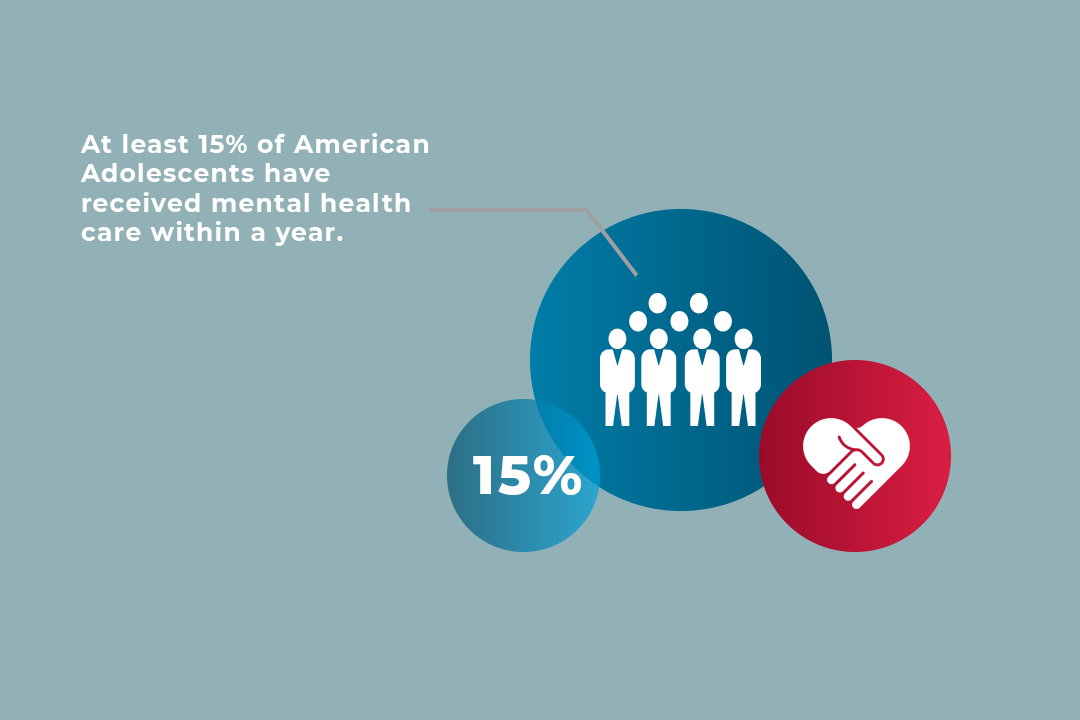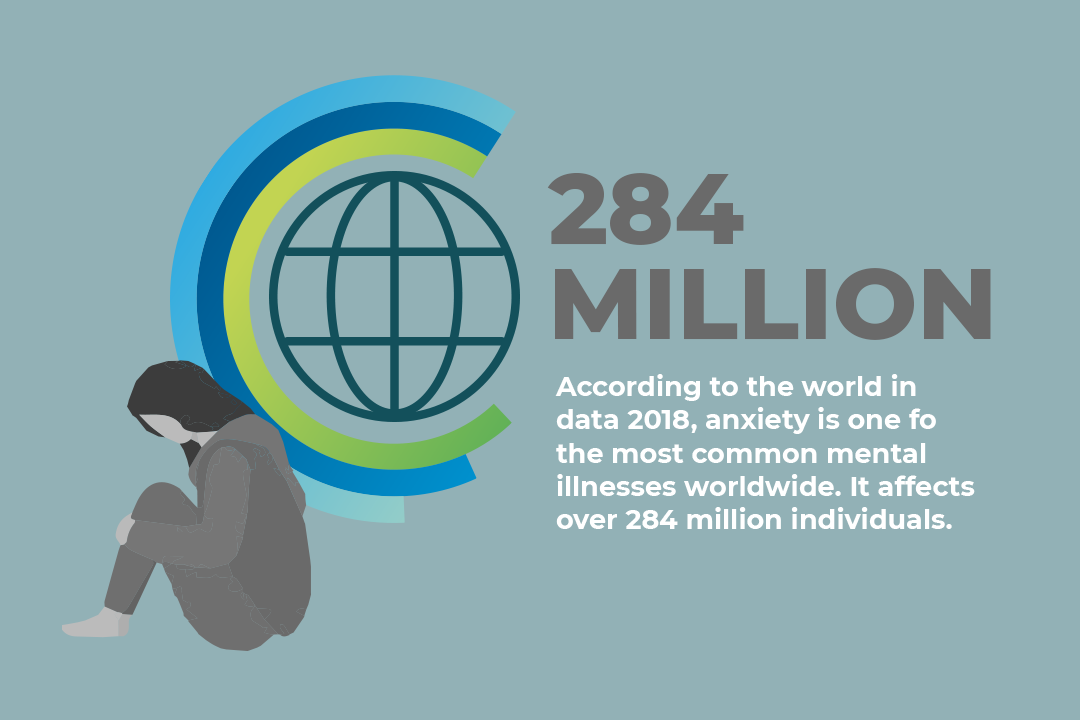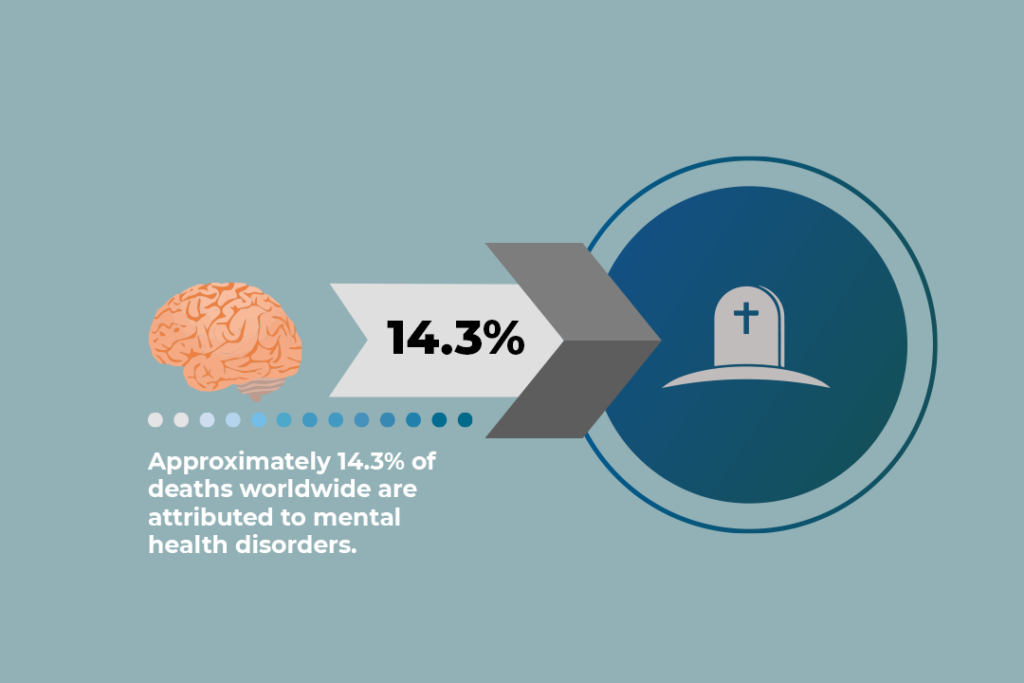Mental Health Care: What You Need to Know
Mental health is an integral part of our overall health and wellness. Read on to learn some tips on how to make sure you stay mentally healthy.
Home - Mental Health & Wellness - Mental Health Care: What You Need to Know
Table of Contents
Definition of Mental Health
Mental health is the psychological and emotional well-being of an individual. It affects our thought processes and how we act, especially in a stressful situation. Mental wellness can also help determine how an individual relates to others and makes choices.
Many people tend to ignore their mental health, which, over time, can lead to mental health conditions for some individuals. Mental wellness is vital at every stage of life, so it is essential to protect and promote our overall mental well-being as much as we can. Learning how to do this at a younger age can also help us as we grow older and start to deal with more stressors overall.

Questions About Treatment?
Let us guide you through your options and treatment opportunities. Contact Alternative Options today.
Understanding the Value of Mental Health
Why is it Important to Maintain Mental Wellness?
Individuals that take good care of their mental health can cope better with the stresses of life. Mental health is also an integral aspect of an individual’s overall health, as it influences the ability to make sound decisions. Mental wellness affects how we build relationships with people around us while also helping to prevent mental health conditions.
When we nurture and look after our mental health, it helps to balance responsibilities and life activities. Good mental wellness can help us lead happy and productive lives.1
What Are the Components of Good Mental Health?
There are three major components of mental well-being that interact and influence each other. The following are some of the components of good mental wellness:
- Behavioral Health: Your behavioral health can be qualified by how well you function and engage with the world. It is also the degree to which you feel a sense of community. When we learn to manage our thoughts and emotions effectively, our behavioral and mental health will improve.
- Cognitive Health: According to a study, humans have an average of 6,000 thoughts that go through their mind daily. Our thoughts are often automatic, and we tend not to recognize them as being just thoughts. These thoughts are mostly prone to bias and error and are not an actual reflection of the truth.2
- Emotional Health: Emotions play an important role in an individual’s mental health. Our emotions help to drive us towards meaningful experiences and avoid danger as well.
How Do These Affect Us?
Our thoughts influence how we act and feel, influencing our decisions and emotions. However, sometimes our thoughts may be “lying” to us, as we can only think about what we know and perceive. If we have a negative world view, our decisions and emotions will be different from someone who has a more positive one.
Recognizing our as just thoughts is an important step in cultivating mental wellness. Working with a therapist can help us reframe our worldview into one that more aligns with our values and beliefs.

The Importance of Mental Health
Mental wellness influences the life of an individual in many ways. Some of the reasons why working to improve our mental wellness is so important are:3
Physical Health
Our mental wellness influences our physical health in more ways than you may think. Lack of mental wellness can lead to mental health conditions. These can also affect our immune systems, induce stress, and lead to severe anxiety. Mental wellness helps establish the connection between the body and mind, improving physical health.
Understanding Physical and Mental Health
Curbing Suicide Rates
Poor mental wellness can lead to several adverse side effects, such as suicidal ideations and thoughts. Improving mental wellness can help curb suicide rates and let people know how to cope with potentially risky situations.
Quality of Life
One symptom in those that experience mental health disorders is that they tend to lose interest in things they once enjoyed. This can affect our overall happiness and quality of life, leading to ups and downs that may hinder us from doing basic tasks.
Building Relationships
One of the important aspects of mental wellness in our society is that it helps build relationships. Our mental wellness impacts how we interact with friends and families. Poor mental wellness can make it harder for people to build and maintain relationships with others.
Financial Stability and Productivity
Another reason to take great care of your mental well-being is that it improves your stability and productivity. Individuals with poor mental health often tend to have less energy and can have lower as a result. This can sometimes make it hard to have a stable and productive job.
Ending Stigma
Due to the stigma associated with mental health conditions, many individuals do not seek help. Mental wellness care encourages individuals to seek therapy and learn how to work through their symptoms.
Ways to Improve Your Mental Health
There are many ways to care for and improve your mental well-being. Some of these include:
Improve Your Physical Health
Since mental wellness is connected to physical health, improving your physical health can show positive effects on your mental well-being as well. You can improve your physical health in various ways, such as:
- Exercising
- Eating well
- Going to therapy
- Taking vitamins or prescriptions
- Seeing friends and family
Positivity
Having a positive outlook in life can help us lead more fulfilling and happy lives. It can be hard to be positive sometimes, especially if we have a lot of stress or are dealing with mental health symptoms. Make sure that you work to reframe your thought processes to help be happier and more positive. Certain therapies, such as cognitive-behavioral therapy, can help with this.
Develop Coping Skills
Developing coping skills helps us be able to react well to a stressful situation.
Learn Relaxation Techniques
There are various relaxation techniques or practices that help your body to produce a natural relaxation response. These techniques slow down breathing and reduce blood pressure, stress, and muscle tension. Some common relaxation techniques include:
- Biofeedback: This type of relaxation technique involves the use of electronic devices. These devices enable the individual to learn how to control some bodily functions, such as muscle tension.
- Guided imagery: In guided imagery, the individual will feel relaxed by focusing on positive mind images. Often, a therapist will walk the individual through a guided imagery session while also addressing certain mental wellness symptoms.
- Breathing exercises: In this technique, the individual engages in deep breathing exercises, which involve taking slow and deep breaths to help regulate the heart.
- Progressive relaxation: This might involve the use of some breathing exercises to relax and tighten different muscle groups in the body. This can help us relax our brains as well.
- Self-hypnosis: This technique aims to get the individual into a relaxed or trance-like state when there is a specific cue to do so. This can help us be more honest and open with ourselves and our emotions.
Connecting With Others
As humans, having healthy and strong relationships with others is vital. Humans are social creatures and need social interaction. When you have a good support system, it reduces the harmful effects of stress and gives you a way to connect with others.
Meditation
Meditation is a practice that involves the focus of the body and mind. When meditating, you learn to focus your awareness and attention, which ultimately leads to relaxation. Meditating often involves lying down or sitting comfortably while naturally letting go of distractions.

What Are the Effects of Poor Mental Health?
Poor mental wellness can lead to various conditions that may affect an individual’s day-to-day life. Poor mental well-being reduces the overall quality of the individual’s physical health while influencing relationships. The following are some of the effects of poor mental wellness:
Unhealthy Habits
Poor mental wellness may hinder an individual from taking proper care of themselves. This can also lead someone to develop unhealthy habits. These habits often manifest in their way of life, such as their hygiene and sleeping pattern. It often leads to chronic effects on the body, such as malnutrition, irritability, and chronic fatigue.
Social Isolation
People with poor mental wellness also tend to isolate themselves from others. This can lead to poor relationships with others, severe anxiety, and issues coping with stressors alone. It’s important to remember that we don’t have to go through our issues alone, despite what our mental state may be telling us. Make sure you reach out to others if you’re going through a hard time.4
A Deeper Look at Social Wellness
Unhappiness
Poor mental wellness can also lead to other disorders, often affecting the brain’s functioning. Over time, it can even affect the ability of the individual to experience happiness. It also disrupts their daily activities.
Poor Immune Health
Another effect of poor mental well-being is a weakened immune system. The immune system becomes vulnerable to infections if an individual deals with large amounts of stress or other health symptoms. This can even lead to some medical conditions, such as heart disease or auto-immune disorders.
Insomnia
Individuals with poor mental wellness care tend to suffer from insomnia or other sleep disorders. Insomnia makes it hard for the individual to stay or fall asleep, leading to chronic tiredness.
What Else Can Affect Our Mental Wellness?
Some other factors may also impact or shape an individual’s mental wellness negatively, such as:
- Neglect
- Child abuse or neglect
- Domestic violence
- Trauma
- Alcohol or drug misuse
- Physical causes such as head injury
- Some lifestyle factors, including diet, lack of sleep, and work

Mental Health Care Facilities and Services
All mental wellness facilities have licensed professionals that diagnose mental health conditions. Many facilities also specialize in the treatment of these disorders and conditions. Some of these facilities may even have a psychiatric unit that accommodates these psychiatric patients for a long period of time, which is referred to as inpatient care.
At these facilities, there are ongoing treatment plans that enable the safety of the diagnosed individuals. The facilities offer services that help reduce the risk of some diseases related to anxiety and stress. These individuals can maintain their regular lives in the community, as these services aim to improve the outlook of individuals and help with any symptoms they may be experiencing.
Other benefits of attending a mental wellness facility include:
Constant and Supervised Care
One of the major benefits of mental wellness facilities is the availability of qualified personnel. These trained professionals are often available every hour of the day to provide supervision, treatment, and monitoring. Some patients may have adverse reactions to new medications introduced in their body system, hence the need for monitoring.
Group Support From Other Patients
Individuals receiving their treatments from mental health facilities can feel a sense of inclusion with other patients. They can also know that they are not alone in the feelings and symptoms they’re experiencing. These individuals often receive support from other patients there for the same treatment.
Access to Professionals
In a mental wellness facility, you have access to therapists and psychologists. These professionals are always on-site to provide more intensive and faster care to the individuals.
Treatment Programs Available For Mental Health Disorders
Individualized treatment programs can help individuals with mental health conditions reach their goals and mitigate any symptoms. These programs are a map that guide the individual toward improved mental wellness.
There are various treatment programs at mental wellness facilities that assist with the individual’s treatment. The following are some available treatment programs at these facilities:
Intensive Outpatient Program (IOP)
An intensive outpatient program is a treatment program that enables an individual to leave the facility’s premises. It is an intensive program to treat ongoing mental health conditions. The program is also a structured psychological treatment for individuals experiencing substance use disorder. This treatment program often consists of at least 12-15 hours of treatment weekly.5
According to the National Institute of Health 2014, research shows that intensive outpatient programs are as effective as inpatient treatment programs. IOPs are often recommended by mental well-being facilities because they help the person to develop coping strategies to utilize outside of the treatment facility. These can help address any ongoing social and emotional issues as well.6
What Does an IOP Typically Entail?
The following are some of the components of an IOP:
- Group and complementary therapy
- Counseling
- Medication management
Outpatient Therapy
Outpatient therapy is a series of treatments that helps the smooth recovery of individuals with mental health conditions. The therapy occurs throughout their visits to the mental care facility. Unlike an inpatient treatment program, the individual can remain at home and continue to go to therapy or other programs while they still work or take care of their family. Outpatient therapy is not as structured as an IOP.
The outpatient program begins with an assessment of what your needs are. Although the treatment may seem difficult to continue going to, it is an effective way to recover from mental disorders. Outpatient treatment programs often include treatments with a nutritionist, counselor, and exercise activities as well.
Benefits of Outpatient Programs
Some benefits of outpatient programs are:
- Outpatient therapy helps the individual to understand their mental state and wellness
- It helps the individual to heal faster and more healthily
- It enables individuals to receive treatment while staying at home and going to work or school
Partial Hospitalization Program (PHP)
This program often runs for a few hours during the day and lasts three to five days weekly. The program is suitable for both adults and adolescents that are experiencing severe mental health conditions.
A partial hospitalization program often includes the following:
- Group therapy
- Random drug testing
- Family therapy
- Nutritional support
- Individual therapy
Conditions that PHP Can Benefit
Most individuals participate in the scheduled treatment session during the day and return to their homes at night. PHP is often used in place of an inpatient hospital stay. It often lasts for two to three weeks. However, the length of stay depends on the individual’s progress. The following are some of the conditions that PHP can help treat:
- Bipolar disorder
- Anxiety disorders
- Substance use disorders
- Obsessive-compulsive disorder (OCD)
- Severe depression and stress

Learn More About Your Mental Health With Alternative Options
Mental wellness affects an individual’s social, emotional, physical, and psychological well-being. It affects how we think and react in stressful situations as well. It is vital to take care of ourselves in all aspects, and making sure we are mentally healthy is no exception. An individual with poor mental well-being often develops unhealthy symptoms such as insomnia and social isolation.
Alternative Options is a mental wellness facility that offers individuals various treatment programs to achieve mental wellness. Our facility helps to reduce anxiety, stress, and risks attached to chronic diseases. We also help those that struggle with substance abuse disorders as well.
Let Us Guide You Through Your Options Toward Optimal Healing
You can reach out to us today to learn more about the available treatment programs we offer to achieve mental wellness. We will work with you to create a tailored and individualized plan to address all of your needs, symptoms, and concerns. Our number one priority is your health and wellness.



